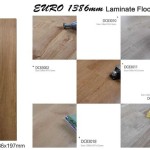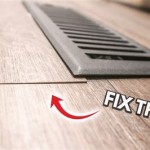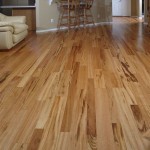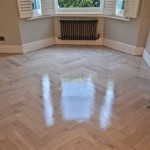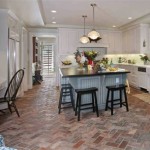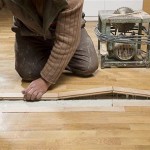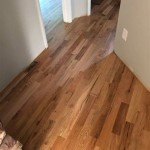Essential Aspects of Engineered Hardwood Flooring: Pros and Cons Explained
Engineered hardwood flooring has become a popular choice for homeowners who seek both durability and the beauty of natural wood. It combines the natural aesthetic of hardwood with the stability of engineered construction, offering unique advantages and some potential drawbacks. Understanding the pros and cons can help you make an informed decision when considering this flooring option.
Pros of Engineered Hardwood Flooring:
Durability: Engineered hardwood flooring is renowned for its exceptional durability. The multiple layers provide enhanced resistance to moisture, temperature fluctuations, and heavy foot traffic, making it an ideal choice for high-traffic areas and moisture-prone environments like kitchens and bathrooms.
Stability: The cross-ply construction of engineered hardwood ensures dimensional stability. It minimizes expansion and contraction caused by seasonal changes, reducing the risk of buckling or warping, even in fluctuating humidity conditions.
Easy Installation: Engineered hardwood flooring comes with a tongue-and-groove system, allowing for quick and simple installation. It can be installed over a variety of subfloors, including concrete, plywood, and existing flooring, making it a versatile option for renovations.
Low Maintenance: Engineered hardwood flooring requires minimal maintenance compared to traditional hardwood. Regular sweeping, vacuuming, and occasional damp mopping keep it looking pristine. It is scratch-resistant and doesn't require frequent sanding or refinishing.
Natural Appearance: Engineered hardwood flooring offers the authentic look and feel of natural hardwood, with a wide variety of species, colors, and textures available. It captures the warmth and beauty of genuine wood, elevating the aesthetic of any space.
Cons of Engineered Hardwood Flooring:
Cost: Engineered hardwood flooring tends to be more expensive than laminate or vinyl flooring options. However, its durability and ease of maintenance can offset the higher initial investment over time.
Limited Refinishing: While engineered hardwood flooring can be refinished, it typically has a limited number of refinishes compared to traditional hardwood. The wear layer, which is the top layer of genuine wood, determines the refinishing potential.
Cannot Repair Deep Scratches: Unlike traditional hardwood, engineered hardwood flooring cannot always be repaired if deeply scratched or damaged. In some cases, replacement of the damaged plank may be necessary.
Potential Fading: Engineered hardwood flooring with lighter stains or finishes may be susceptible to fading over time, especially in areas exposed to sunlight. Regular maintenance and UV protection can help minimize this potential issue.
Can Be Susceptible to Moisture: While engineered hardwood flooring is moisture-resistant, it's not completely waterproof. Excessive or prolonged exposure to moisture can still cause damage, so areas prone to spills or leaks should be addressed promptly.
Conclusion:
Engineered hardwood flooring presents a compelling combination of durability, stability, and natural beauty. Its advantages far outweigh its potential drawbacks for many homeowners. By carefully considering the pros and cons, you can discern if engineered hardwood flooring is an ideal choice for your unique needs and preferences. Its exceptional performance, low maintenance, and aesthetic appeal make it a sought-after option for modern homes and renovations.

Engineered Hardwood Vs Laminate

Engineered Hardwood Flooring Pros And Cons Floors Blvd

Engineered Wood Flooring Homeowner Pros Cons

Laminate Flooring Vs Engineered Hardwood Pros And Cons

Solid Vs Engineered Hardwood Which Is Better Flooring

Engineered Timber Flooring Pros And Cons Versace Timbers

Engineered Wood Flooring Pros And Cons Forbes Home

Pros Cons Of Engineered Hardwood Flooring Reno Super

Engineered Wood Flooring Reviews Pros And Cons Best Brands Cost 2024

Hardwood Vs Engineered Wood Flooring Which Is Best For You Forbes Home
See Also
